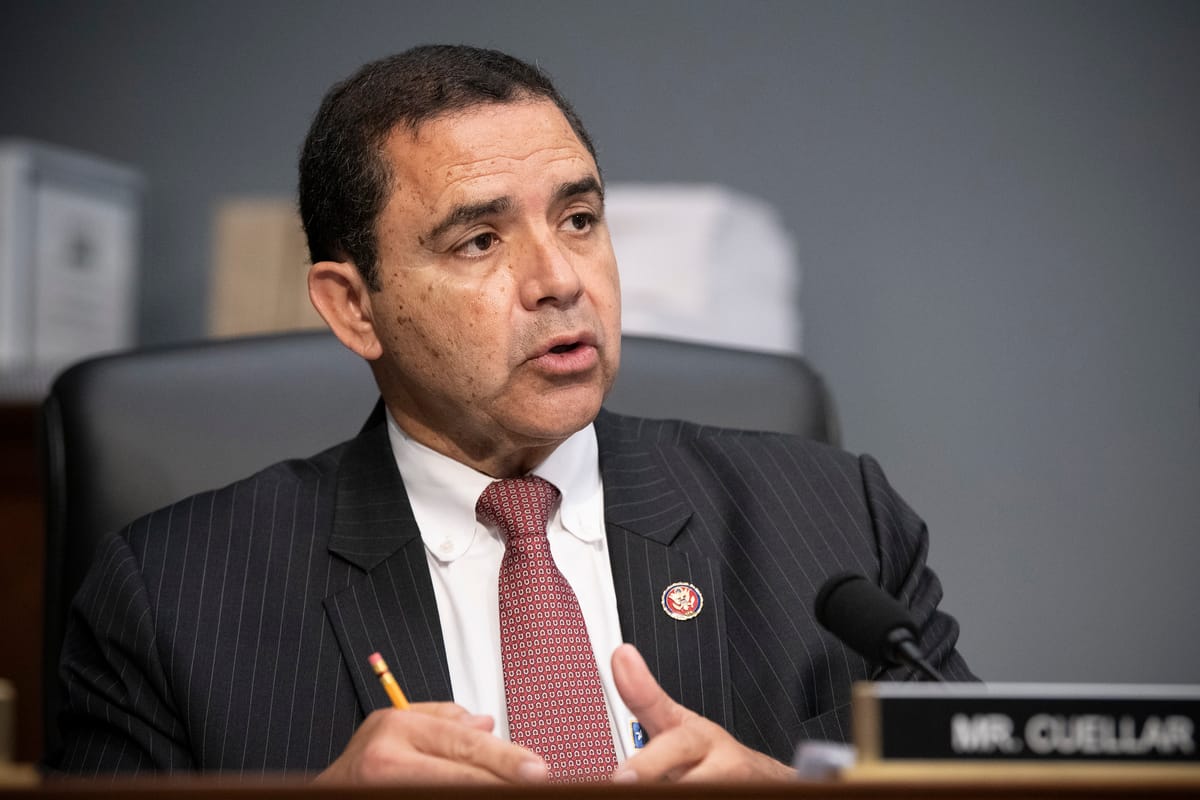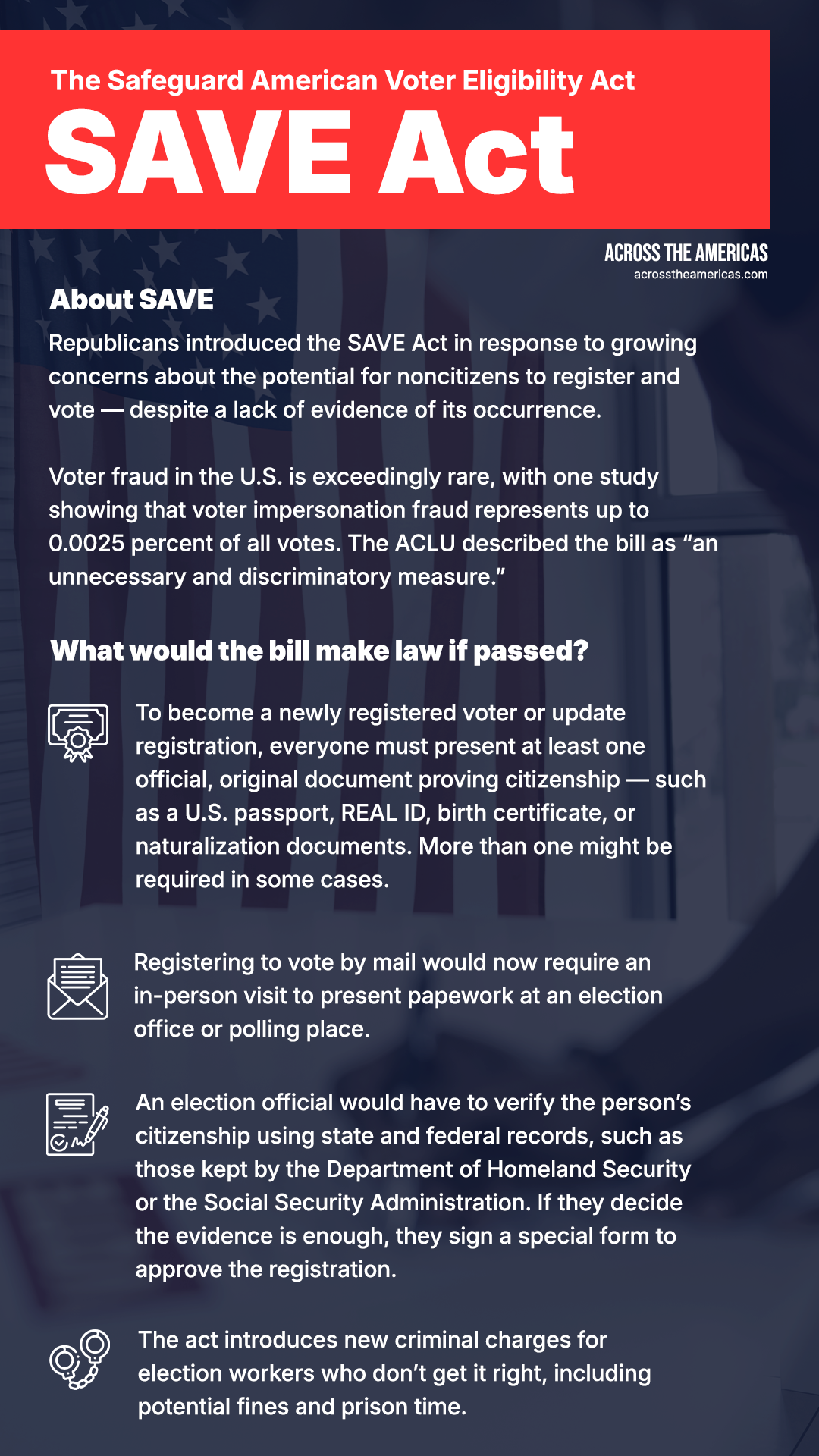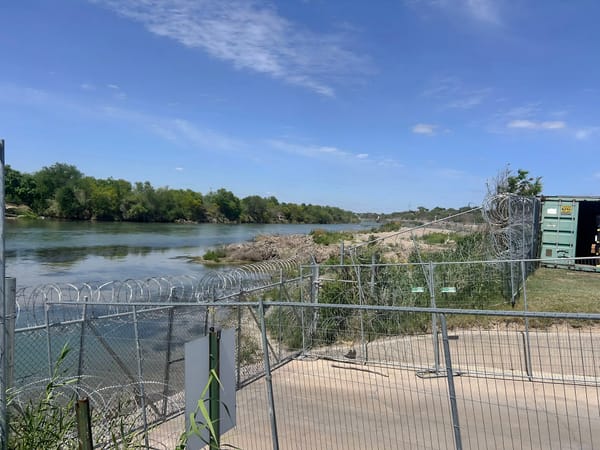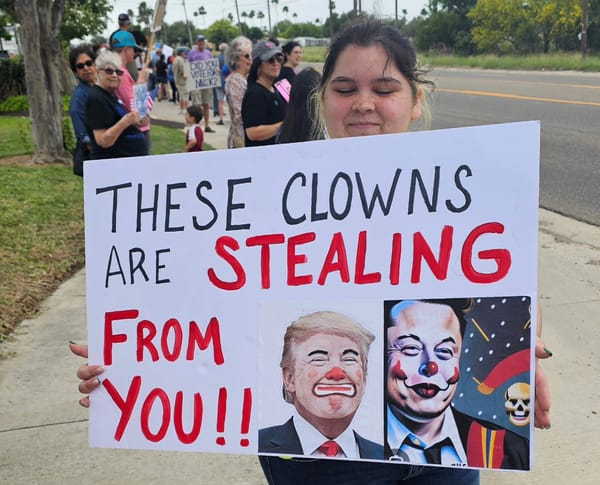Rep. Henry Cuellar votes with Republicans to pass a voter registration bill that critics call ‘discriminatory’
Republicans introduced the SAVE Act in response to growing concerns within their party about the potential for noncitizens to register and vote.

The U.S. House of Representatives voted on Thursday to pass the Safeguard American Voter Eligibility (SAVE) Act, a bill that creates new requirements in order to register to vote, including proving citizenship. Critics are calling the bill a voter suppression measure that could disenfranchise millions of eligible voters if it next passes the Senate to become law.
Democratic Rep. Henry Cuellar, who represents Texas’ 28th District, which stretches from Laredo to just east of Rio Grande City, broke with his party this week to vote with Republicans in support of the bill. Cuellar is known for reaching across the aisle to vote with Republicans on a variety of issues.
“I supported this bill because I believe in something simple: only American citizens should vote in American elections,” Cuellar said in a public statement.
Republicans introduced the SAVE Act in response to growing concerns within their party about the potential for noncitizens to register and vote — despite a lack of evidence of its occurrence.
Voter fraud in the U.S. is exceedingly rare, with one study showing that rates of voter impersonation fraud represent between 0.0003 percent and 0.0025 percent of all votes.
For example, a study by the Brookings Institution — a nonpartisan research nonprofit based in Washington, D.C. — found that in Arizona, over a span of 25 years and more than 42 million ballots cast, only 36 cases of fraud were ever identified, none of which altered election outcomes.
“No election outcome in the U.S. has ever been altered by ballot fraud,” the Brookings study found.
Still, Cuellar said that his vote to support the SAVE Act was made in consideration of “protecting the integrity of our elections.”
“That’s how we keep trust in our democracy, and that’s something worth standing up for,” Cuellar said in his public statement.
The American Civil Liberties Union (ACLU) described the bill as “an unnecessary and discriminatory measure that would effectively end online and mail voter registration, disenfranchise millions of eligible voters and destabilize election administration nationwide.”
"This legislation would especially harm naturalized citizens, voters with low incomes, voters of color, Native American voters, rural voters, and first-time voters—many of whom lack easy access to a passport or birth certificate," ACLU said in a press release.

The Rio Grande Valley, which already historically suffers from low voter turnout, stands to be disproportionately affected by the SAVE Act. Many residents in the region live in rural areas and face economic and social challenges. These factors would contribute to lower or more difficult access to the specific forms of identification required by the SAVE Act, such as U.S. passports or birth certificates.
But Cuellar assured constituents this week, “If you’re already registered, nothing changes for you.”
However, Under the SAVE Act, the need to update registration could be triggered by common life events like moving or changing names. Individuals in this situation would be required to show proof of citizenship, a possibly long process with extra costs involved for anyone whose name on an ID doesn’t match their name on a birth certificate — like many married people who’ve taken their spouse's name.
Individuals who move and anyone who has never registered before would also have to pass a citizenship verification process.
In the U.S., about 8 million people moved from one state to another in 2022. At that pace, an estimated 12 million will have moved before the 2026 midterms, and around 28 million before the next presidential election.
And when it comes to those who must register for the first time, millions become eligible each year. In 2024 alone, estimates showed that 8 million youth became eligible to vote.
Research has shown that the process of registering can be a significant hurdle for everyone. A 2017 analysis by Cambridge University found that simply eliminating barriers to voter registration boosted participation on Election Day by up to 10 percent—which would have meant 15 million more votes cast for just the presidential candidates in 2024.

But proof of citizenship is not the only new requirement for voter registration introduced by the Save Act.
The bill also would require those registering by mail to present their documents at an election office, have their citizenship verified through government databases and receive a final signature from an election official. The act would establish criminal penalties for election workers, including potential fines and prison time, for failing to follow required procedures.
In Texas’ 15th District, which covers part of the Rio Grande Valley, Republican Rep. Monica De La Cruz did not vote on the bill. De La Cruz said in a public statement that “voting is a privilege that only comes with citizenship” after she voted in support of the bill the first time it was introduced in 2024 during the last session of Congress.
Democratic 34th District Rep. Vicente Gonzalez voted against it.





